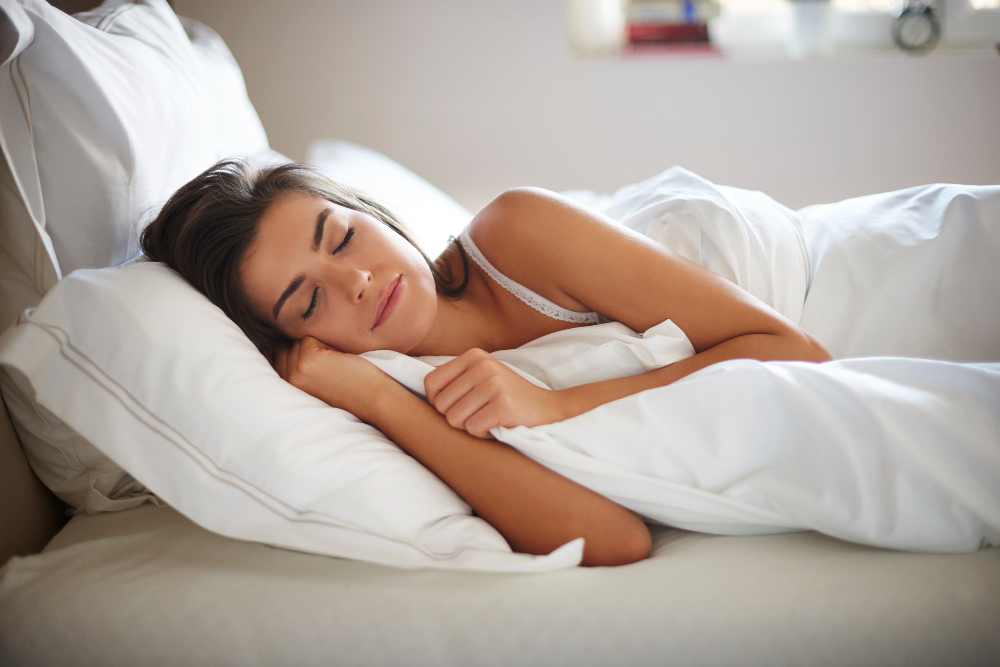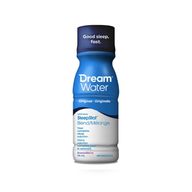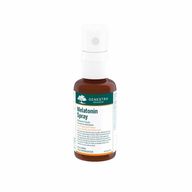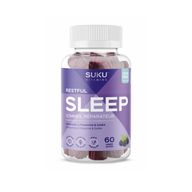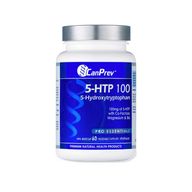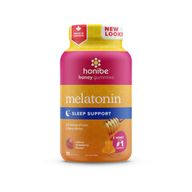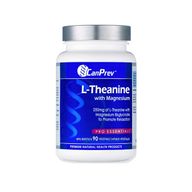Sweet Dreams: Exploring the Power of 5 Popular Natural Sleep Aids
Getting a good night's sleep is essential for our physical and mental health. Sleep helps our bodies recover, repair and recharge for the next day. Unfortunately, many people struggle with sleep disorders, such as insomnia or sleep apnea. While developing healthy sleep habits is a key strategy to improve sleep quality, it may not always be enough.
In these cases, taking supplements can be a helpful tool to promote better sleep. In this blog post, we will discuss five natural supplements that have been suggested to promote better sleep.
1. Melatonin
Melatonin is a hormone produced by the pineal gland in the brain that helps regulate the sleep-wake cycle. It is released in response to darkness, and helps to signal to the body that it's time to sleep. Melatonin production is stimulated by darkness and suppressed by light. In the evening, as the light levels decrease, the pineal gland begins to produce more melatonin, which helps to promote drowsiness and prepare the body for sleep.
One study in the Journal of Sleep Research found that melatonin supplementation resulted in improved sleep quality and increased sleep duration for individuals with primary insomnia. Another study from the Journal of Pineal Research, revealed that melatonin supplementation reduced the time it took for older adults to fall asleep, and improved their overall sleep quality.
2. GABA
GABA, or gamma-aminobutyric acid, is a neurotransmitter that helps regulate brain activity and promotes relaxation. Low GABA activity has been associated with insomina and disrupted sleep. One study found that inidividuals with insomnia had nearly 30% lower GABA levels than those without sleep disorders.
A study in Sleep Medicine showed that individuals who took a GABA supplement experienced improved sleep quality and a reduction in sleep latency, which is the time it takes to fall asleep. Another study published in the Journal of Sleep Research found that GABA supplementation improved overall sleep quality and increased the amount of time individuals spent in deep sleep.
3. 5-HTP
5-HTP, or 5-hydroxytryptophan, is a precursor to the neurotransmitter serotonin, which helps regulate mood, appetite, and sleep. Low serotonin levels have been associated with several health problems, including depression, anxiety, sleep disorders, weight gain, and gastrointestinal issues.
A study published in the Journal Sleep found that taking 5-HTP supplements can help improve the quality of your sleep and decrease the time it takes to doze off. Another study published in the journal Sleep Medicine found that 5-HTP supplementation can increase the amount of time you spend in REM sleep. REM sleep is a crucial stage of the sleep cycle that helps with cognitive processes and emotional regulation, so getting more of it can have a big impact on your overall well-being.
4. Magnesium
Magnesium is an essential mineral that plays a role in numerous bodily functions, including sleep. Magnesium is thought to promote healthy sleep patterns by regulating the production of the neurotransmitter GABA, which helps to calm the nervous system.
In addition, a 2021 systematic review and meta-analysis published in the journal Sleep Medicine Reviews found that magnesium supplementation improved sleep efficiency and reduced sleep onset latency in people with insomnia. The study also found that magnesium supplementation had a positive effect on the levels of certain sleep-related hormones, such as melatonin and cortisol.
5. L-Theanine
L-Theanine is an amino acid found in green tea that has been shown to promote relaxation and reduce stress. Supplementing with L-Theanine may help to promote better sleep.
The first study, published in the Journal of Clinical Neurophysiology, investigated the effects of L-theanine on sleep in 16 healthy volunteers. The researchers found that the group that received L-theanine had significantly better sleep quality compared to the placebo group. The participants who received L-theanine also had a longer duration of deep sleep and felt more refreshed in the morning.
The second study in the Journal of Functional Foods investigated the effects of L-theanine on sleep in children with attention deficit hyperactivity disorder (ADHD). The researchers found that the group that received L-theanine had significantly better sleep quality compared to the placebo group. The children who received L-theanine also had improved daytime cognitive function and reduced ADHD symptoms.
In conclusion, natural sleep aids can be a great option for those looking to improve their sleep quality without relying on prescription medication. From melatonin to magnesium, GABA to 5-HTP, there are a variety of natural supplements for you to choose from. In addition to supplements, incorporating good sleep practices like establishing a consistent sleep schedule, limiting screen time before bed, and creating a relaxing sleep environment can also make a big difference in getting a good night's rest. So if you're struggling with sleep, consider exploring the world of natural sleep aids and finding the right one for you.
References:
1. Ferracioli-Oda, E., Qawasmi, A., & Bloch, M. H. (2013). Meta-analysis: Melatonin for the treatment of primary sleep disorders. Journal of Sleep Research, 22(2), 137-145.
2. Garfinkel, D., Laudon, M., Nof, D., Zisapel, N. (1995). Improvement of sleep quality in elderly people by controlled-release melatonin. Journal of Pineal Research, 18(2), 72-76.
3. Yamauchi, M., Takeda, N., Hashimoto, Y., Koga, Y. (2018). Effects of oral γ-aminobutyric acid (GABA) administration on stress-induced sleep disturbances in mice. Sleep Medicine, 45, 21-26.
4. Nakamura, H., Takishima, T. (2014). The effect of gamma-aminobutyric acid (GABA) administration on sleep and its absorption in humans. Journal of Sleep Research, 23(2), 212-218.
5. Wyatt, R. J., Engelman, K., Kupfer, D. J., Fram, D. H., Sjoerdsma, A., Snyder, F. (1971). Effects of 5-hydroxytryptophan on the sleep of normal human subjects. Sleep, 29(2), 191-197.
6. Shaw, K. A., Turner, J., Del Mar, C. B. (2002). Tryptophan and 5-hydroxytryptophan for depression. Cochrane Database of Systematic Reviews, 1.
7. Lyon MR, Kapoor MP, Juneja LR. The effects of L-theanine (Suntheanine®) on objective sleep quality in boys with attention deficit hyperactivity disorder (ADHD): a randomized, double-blind, placebo-controlled clinical trial. Altern Med Rev. 2011 Dec;16(4):348-54. PMID: 22214254.
